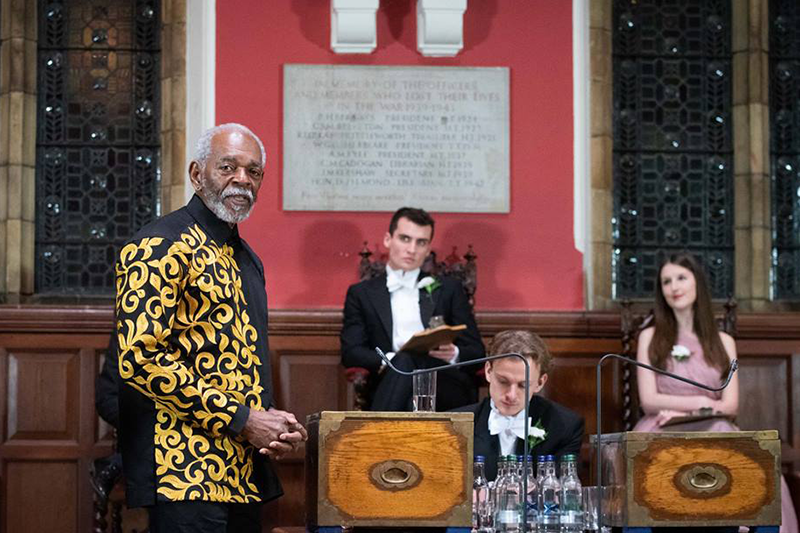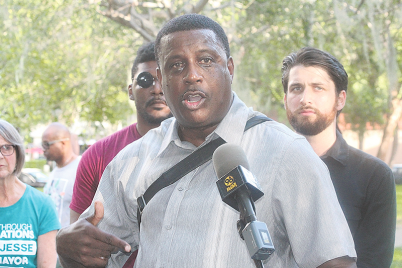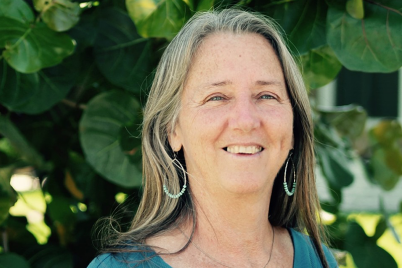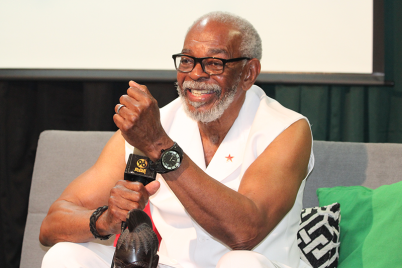OXFORDSHIRE, England — Last Dec. 8, Omali Yeshitela, chairman of the African People’s Socialist Party, was messaged by the Oxford Union requesting his participation in the Thursday formal Oxford debates.
The Oxford Union describes itself as “the world’s most prestigious debating society, with an unparalleled reputation for bringing international guests and speakers to Oxford.”
The invitation in part read:
“Dear Mr. Yeshitela, I hope this email finds you well. I am writing to extend an invitation to speak at the Oxford Union in our forthcoming term.
Founded in 1823, the Oxford Union is the largest society at the University of Oxford and one of the most famous student societies in the world. In the past we have hosted visits ranging from US Presidents Reagan, Nixon and Carter to Morgan Freeman and Malcolm X. Moreover, we are famous for debating the most important and pressing issues of the day, from a ‘Liberty and Security Debate’ last year, to the ‘King and Country’ debate of 1933. We would love for you to be a part of this tradition, and speak on the motion: ‘This House Believes the Left Must Reclaim Populism’
With a lifetime of fighting for freedom for African people, you are a globally inspiring champion for racial equality and socialism. Your vision has been crucial to shaping the theory of African Internationalism and indeed the socialist movement worldwide. This timely debate would be hugely benefited by your irreplaceable perspective and input.”
Despite Oxford issuing the debate topica month before the debate was to occur, the hosts shortly before the event date changed it from the previous topic to “Should this house embrace an ever closer African union.”
The debate occurred Jan. 24 and included participants to argue for and against the position.
Yeshitela was assigned to argue the proposition along with Dr. Garang Dut, a graduate officer at Oxford and Dr. Reuben Brigety, a former U.S. ambassador to the African Union and permanent representative to the UN Economic Commission for Africa.
Oxford’s opposition lineup consisted of Professor Arthur Mutambara, a former deputy prime minister of Zimbabwe and president of a Movement for Democratic Change opposition party, as well as Carine Kaneza Nantulya, an Africa advocacy director with the Africa division at Human Rights Watch and Ayman D’Souza, an Oxford student.
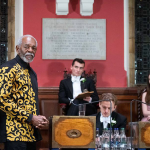 Even though Yeshitela was assigned to a team, it was clear his argument was different from everyone that he was called to debate against. The reasons some people believed Africa should have a closer African union weren’t the same reasons as he gave.
Even though Yeshitela was assigned to a team, it was clear his argument was different from everyone that he was called to debate against. The reasons some people believed Africa should have a closer African union weren’t the same reasons as he gave.
“We are one Africa, one nation! And we must have closer union, but in order for that to happen it must be a revolutionary union.”
Following the Yeshitela closing statement, the room roared with applause, standing to their feet with the chants “Izwe lethu, i Afrika!” resounding throughout the venue.
Students at the Oxford Union would go on to say that they had never seen a standing ovation as long as they’d worked the debates.
Yeshitela’s electrifying presentation inspired the students at Oxford, most of them flocking to him at the end of the evening.
One student, when asked about how he received Yeshitela’s presentation, said, “It wasn’t an address that we commonly see at the Union, it wasn’t one that focused on the semantics or the nitty-gritty of the argument, or the motion, it was one that called for outright revolution and the argument that followed behind it applied revolutionary logic that I’m glad he brought to the union. It changed my views.”
As a result of his argument, the proposition was declared the winner, voted two to one.
It was a groundbreaking moment in black history, and St. Pete’s black community should be proud of our very own, being represented in the best way!
To view the documentary of Yeshitela at the Oxford Union, plan to attend the Uhuru Movement’s “An Evening with Chairman Omali Yeshitela,” where he will give an account of the debate.
The event is being held March 10 beginning at 3 p.m. at the Uhuru House, located at 1245 18th Ave. S.

